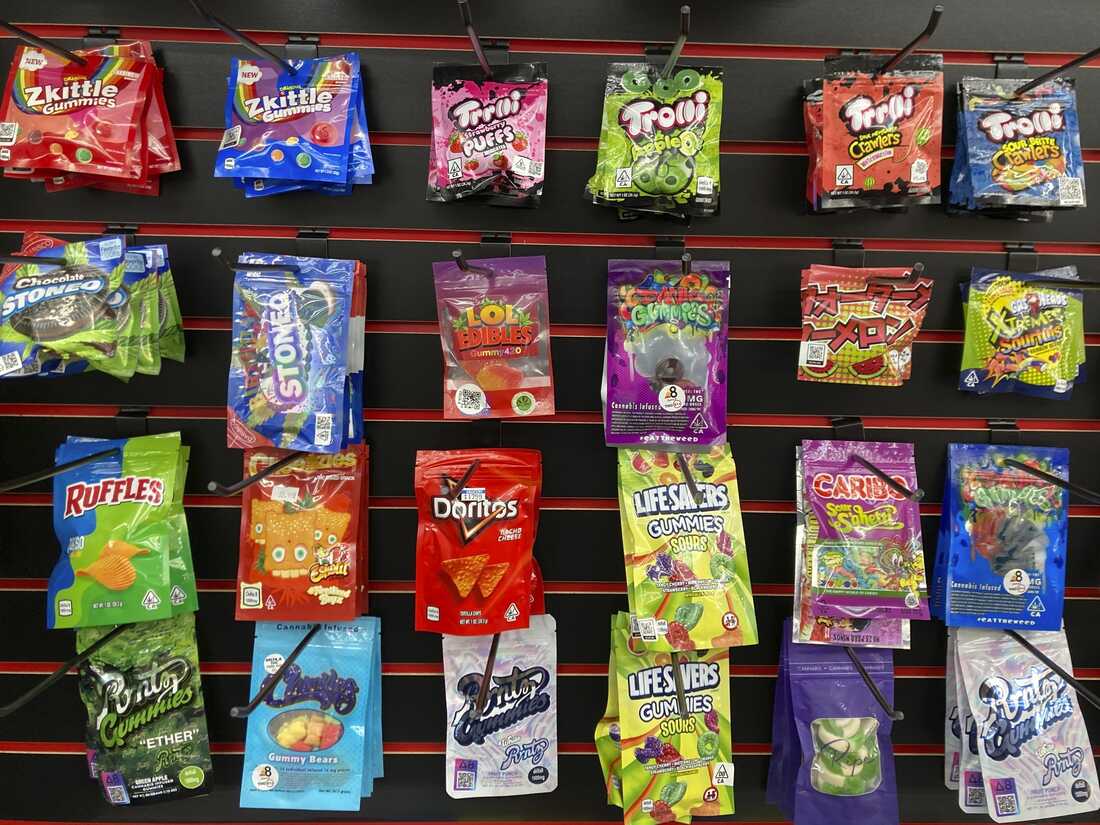
Understanding the Risks of Delta-8 THC
Edible products containing delta-8 THC were recently spotted for sale at a Seattle smoke shop in 2022, raising concerns among health officials about potential overuse by teenagers.
A recent national survey involving over 2,000 high school seniors revealed that more than 11% had experimented with delta-8 THC within the past year. This psychoactive substance, often referred to as “diet weed” or “weed lite,” is derived from hemp and is known for its milder effects compared to delta-9 THC, the primary psychoactive component in marijuana.
The prevalence of delta-8 THC use among teens is notably higher in states where regulations on the compound are absent, especially in regions where marijuana remains illegal. These findings were detailed in a recent study published in JAMA, based on data from Monitoring the Future, a survey that tracks adolescent behaviors and habits.
Renee Johnson, a professor at Johns Hopkins School of Public Health, expressed growing concerns regarding the unregulated sale of delta-8 THC products. Despite the compound’s rise in popularity after the 2018 Farm Bill legalized the sale of hemp-derived cannabis products with less than 0.3% delta-9 THC, the lack of oversight surrounding delta-8 products, often marketed as edibles or vapes, remains a significant issue.
According to Johnson, the absence of regulation poses risks as the potency of delta-8 products is often unknown. These products, derived from hemp-based CBD, can contain higher concentrations of the drug than naturally found in cannabis plants, potentially leading to adverse health effects such as coughing, rapid heart rate, paranoia, anxiety, breathing difficulties, and seizures.
Teens, in particular, are vulnerable to these effects due to their limited experience with drugs. Johnson emphasized the dangers of teens consuming delta-8 THC edibles, highlighting the risk of unintentional overconsumption due to the delayed onset of effects.
This scenario increases the likelihood of individuals requiring medical attention for cannabis overconsumption. Johnson pointed out that many states lack laws mandating the accurate labeling of delta-8 products, further complicating the issue of product safety and regulation.
In response to the growing concerns, the Food and Drug Administration (FDA) issued a warning in 2022 regarding the potential risks associated with delta-8 THC, emphasizing that the compound has not been evaluated or approved for safe use. The FDA highlighted that poison control centers had received over 2,300 cases of delta-8 exposure between January 1, 2021, and February 28, 2022.
As of January 2023, delta-8 THC had been prohibited in 15 states and was subject to regulations in eight others, as outlined in Johnson’s editorial on the subject.
Please visit our site 60time.com and don’t forget to follow us on social media at Facebook.


